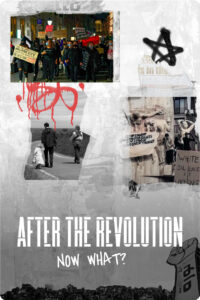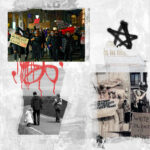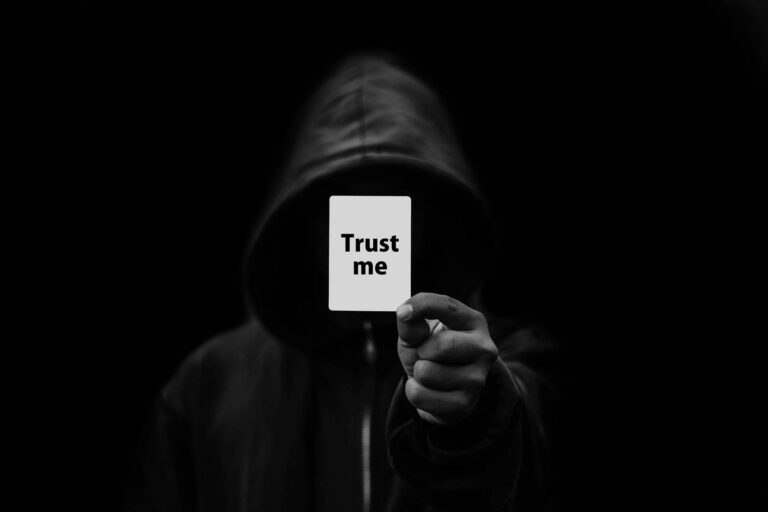November 2005. I was discovering what a big boy’s life was like at the Paul Bert secondary school in Drancy, a city in Seine-Saint-Denis, north-east of Paris. A commune that is better known for its involvement in the Second World War than for being mentioned in the crime section of the newspaper. I was experiencing a turning point in my young life: my mother was no longer taking me to school, I was making new friends and I had just joined a new football club. However, my excitement for life as an eleven-year-old was about to fade and give way to a burdensome atmosphere.
Nights fall at 6 pm, with the batch of police sirens and arrests in the nearby suburbs. A tense climate explained by the tragedy that took place a few days ago. On October 27, 2005, two teenagers tragically lost their lives. Their names were Zyed and Bouna and they were respectively 15 and 17 years old. While running away from a police check after a football match, they hid in an EDF transformer. Their friend Muhittin Altun, who was with them that day, managed to escape with serious injuries.
Football acts as a link with all the fellow Île-de-France comrades that I could meet at an inter-district tournament as I’ve begun participating in all the games played on the streets and on the parched sand of the Auguste Delaune stadium located at the foot of my block.
During the night of October 30 to November 1, 2005, a Clichois mosque is also attacked. A series of events that triggers three weeks of nationwide insurrections often described as riots. “I prefer to use the word revolt. The term riots refers to an unjustified protest to the system and the republican framework,” says Mehdi Bigaderne, the deputy in charge of the city of Clichy-Sous-Bois since 2008. An elected representative with whom I was able to speak with open arms in an oddly empty city hall. A frank and warm dialogue in contrast with a cold and rainy October afternoon. The observation is just as cold fifteen years later. “I had no political conscience, but I was able to develop it as I participated in the revolts. Urban violence was the last resort to move the lines and shatter the famous glass ceiling that our elders ran up against. But little or nothing has changed.” deplores N, a 40-year-old man still living in the Rose des Vents district of Aulnay-Sous-Bois.
The CPE served as a counter-riot and brought another category of youth into the streets: high school students, white, middle class and completely out of step with the suburbs. The government’s attempt to respond to the suburban youth has dragged another one into the street
Michel Kokoreff, sociology professor
“Sarkozy has his share of responsibility for this outburst”
There were already warning signs in 2005. “There was a powder keg and all the elements for a spark to occur,” says Olivier Klein, mayor of Clichy-Sous-Bois. In 2003, Nicolas Sarkozy, who was then the Minister of the Interior, put an end to community policing. On June 19, 2005, he declared that it would be necessary to “clean up with a high-pressure hose” the Cité des 4000, one of the neighborhoods in La Courneuve. Two days before the tragedy, on October 25, 2005, he declared to an inhabitant of Argenteuil that he was going to “rid the neighborhood of the scum”. “He has his share of responsibility in this outburst for having said that French people’s main concern was insecurity, which wasn’t the case in 2005,” states Mehdi, who is also a close family friend of the Traorés.
In the wake of the events, he co-founded the AC Le Feu collective with several peers. The association’s mission is to relay the concerns of the predominantly immigrant and poor neighborhoods to the institutions. That was the goal when it started a tour of France in order to collect the opinions and grievances of citizens. It is also a way to change the image that provincials have of the poor suburban areas of Paris. Twenty thousand grievances were collected in six months across one hundred and twenty cities. Far from anxiety-provoking speeches, the major preoccupations are employment and housing. Security is far behind. At the end of its civic mission, the association was met with the contempt of the institutions and the grievances were not followed up. I can remember Mehdi mimicking the attitude of Jean-Louis Debré, at that time President of the National Assembly, asking him to leave the document with the concierge.
On March 31, 2006, President Jacques Chirac promulgated the law on equal opportunities. Directly aimed at young people, it allowed work-study apprenticeships from the age of 14 as well as the creation of “sensitive urban zones” (“Zone urbaines sensibles”), offering subsidies and tax breaks to companies that come to set up in these areas. “Some simply put a letterbox to take advantage of these zones without actually moving their business there. And even when they do, they don’t employ the young people of the local communities,” deplores the territorial official. But the article on the “First Employment Contract (CPE)” was decisive to crystallize the anger of French youth. Intended for the under-26 year-olds, it stipulated an extension of the trial period to two years (as opposed to eight months for a classic permanent contract). A period during which the employer could fire the young employee without justification. After four months of protests, the executive withdrew the CPE in April 2006. A movement which made it possible for the anger coming from the poorest suburbs to spread all the way to the middle class, according to Michel Kokoreff, a sociology professor at the University of Paris 8 Vincennes-Saint-Denis who has been working for thirty years on disadvantaged suburbs. “The CPE served as a counter-riot and brought another category of youth into the streets: high school students, white, middle class and completely out of step with the suburbs. The government’s attempt to respond to the suburban youth has dragged another one into the street.”
Return the “power to act” to local communities
There is a strong sentiment of not feeling considered or recognized in the poor and predominantly immigrant neighborhoods. Marie-Hélène Bacqué, professor of Urban Studies at the University of Paris-Nanterre, warns: “Our representative democracy is sick. We need to think of a way to bring the citizen back to the very center of the debate and of the political dynamics. We need to create spaces for debate in disenfranchised communities and then let people raise these voices to the national level”. The urban policy created following the riots in the Lyon suburbs in the early 1980s did not respond to this urge for participation.
In this light, she started to co-write a report with Mohamed Mechmache, president of AC Le Feu, in January 2013. A six-month mission to reconsider the issue of local communities’ participation. After multiple meetings and interactions with local associations, a number of observations were drawn up and submitted to François Lamy, Minister of Urban Affairs. These included issues such as a lack of opportunities to discuss and the undesirable effects of putting associations in competition, the latter being subject to calls for tender. The thirty proposals made in June 2013 have never, or hardly ever been acted upon. “If they are not even paying attention to what we say, what is the point of a political engagement if it’s just to put on an act? “ Mohamed Mechmache denounces.
Like any good and curious journalist, I wondered whether this report had not been followed by a political reaction. And I noticed that two months after being published, François Lamy presented his bill on August 2, 2013. Promulgated on February 21, 2014, it involves more than 1,500 priority districts, selected on the sole criterion of per capita income. One of the key elements of the bill that echoes the mentioned report is the implementation of citizens’ councils. Thus, they introduce the principle of “co-construction” of the city’s policy with the inhabitants, empowering them to take action on the execution of projects that impact on their district.
“These announcements sound very appealing, but we want to set up our own structures to make a positive impact on our neighborhoods and to make good use of what they have brought us. Today, we do not feel supported enough,” rants K, a thirty-year-old resident of the Bas-Clichy. However, citizens do manage to initiate projects, even though assistance is often a necessity for them.
Nawufal Mohamed’s is one of them. The Clichois activist founded the association “Informing and taking action in disenfranchised neighborhoods”, which led to the creation of the medium “La chaise pliante” [The folding chair] in 2020. The idea behind it? To interview the stakeholders of the neighborhoods, at the foot of the blocks, sitting on a folding chair, a symbolic relic of the suburban imagery.
Social diversity never really happened. The inhabitants are poorer now than fifteen years ago
Mehdi Bigaderne, deputy in charge of the city of Clichy-Sous-Boi
“The façades of buildings can be refurbished, but not the problems inside.”
“As for the building renovations, we’re still waiting” rapped the 113 in “Les Princes de la Ville”, a song that came out in 1999. Five years later, a “National Urban Renovation Project (PNRU)” was born. It expressed a willingness to transform districts classified as “Sensitive Urban Zones” through the renovation of housing and public facilities.
The project kicked off in the city where it all began: Clichy-sous-Bois in December 2004. “For the most part, we carried out what was planned. Whether or not this tragedy had happened, things would have been almost the same in urban matters,” recounts the mayor Olivier Klein. Also president of the National Agency for Urban Renewal and thus in charge of the implementation of the plan, he doesn’t want the unfortunate event to be the symbol of an urban policy, even if he agrees that it had an impact on raising awareness: “The sad death of our two children and the Clichois situation have shed light on these neighborhoods. No one could ignore what was happening there any longer,” testifies the elected representative over the phone, with a hoarse voice due to the flu.
The opening-up initiatives were designed to promote social diversity. The 12 billion euro plan benefited 600 districts — 490 for the Ministry of Territorial Cohesion — and nearly 4 million inhabitants. A new program was launched in 2014 to complete the first one. An additional 10 billion were injected to keep up the work, involving now nearly 450 districts. By October 19, 2020, the new plan had been launched in more than half of the city’s priority districts. “For many of them, these are cities and neighborhoods already reached by the first project, which proved to be insufficient,” explains Olivier Klein. For Clichy, this first program had enabled the construction of three new schools and a daycare.
Urban regeneration is not always followed by practical effects on the social level. “The façades of buildings can be refurbished, but not the problems inside” adds Bacqué, who is never short of punchlines. Everyone agrees, however, that even though the urban renovation brings real comfort to daily life, it has not solved the underlying problems. “It is not the Urban renovation project that will solve the major social issues such as youth employment,” says Olivier Klein.

The ongoing tense police-youth relationship
The police officers who attempted to arrest Zyed and Bouna were discharged in May 2015 by the criminal court of Rennes. The families have not received any financial compensation and are not sure they will take any further legal action. “We haven’t brought up the matter with our lawyers yet, we’re not discussing it at the moment. It’s not our main concern currently, we have accepted the decision,” says Siyakha Traoré, Bouna’s elder brother, with dignity and resilience. Still profoundly wounded, he found the strength to grant me a few minutes after several hesitations. “There is police violence and we don’t even know if there will be any consequences. It’s enough to question the role of the court,” adds Siyakha, almost resigned. “But not everyone is the same within the police and you shouldn’t generalize,” he tempers. In contrast to Assa Traoré, who was headlined on the front page of the Time for her fight against police violence, he has chosen not to get involved in the realm of activism: “We are doing prevention among young people. We try to be benevolent towards our own, to lift each other up, but I don’t undertake any special action”.
Help us tell the world to you !
Frictions is launching its club : by supporting Frictions, you’ll be supporting a community of authors and journalists who tell the world through intimate stories!

Towards another 2005?
“They don’t want it to burn like in 2005, yet they’re making the same mistakes,” sang the rapper Ninho in one of his songs in 2018. A punchline that resonates with the alarmist observation made by the local figures in the deprived neighborhoods. The latter do not dismiss the resurgence of large-scale uprisings given that the underlying problems persist. “Social diversity never really happened. The inhabitants are poorer now than fifteen years ago,” observes Mehdi Bigaderne with indignation.
Escalating tensions, which were reinforced by the draft law on separatism presented to the Council of Ministers on December 9, 2020. It suggests strengthening the “arsenal for fighting radical Islam”. Emmanuel Macron also hinted at disenfranchised suburbs, saying that they are prey to a lack of diversity that “builds our own separatism” by concentrating “populations according to their origins”.
Such measures include the shutdown of places of worship that promote discourse deemed against the national values of the Republic as well as the fight against the community-based associations. For the Clichois Deputy, “we surf on the news without entering into deep reading. The community associations are a solidarity of last resort in the absence of a national response.” The phenomena of radicalisation and stigmatisation are, in the eyes of the people living in the poor districts, partly the outcome of a media and political campaign which plays on the fears and resentment towards the “priority districts”, where the proportion of immigrants is three times higher than the national average (26.7% as against 9.3%). “There is an obvious tendency to make dangerous correlations with the poor neighborhoods. In 2005, this was contained and elaborated. Here, things are happening every year and they are not being taken into account. I’m worried about how things will turn out in the upcoming years,” Mehdi fears, with a far more serious tone.
Zyed Benna’s family couldn’t think of a life in France anymore and decided to return to Tunisia. The Traoré family, still living in the Paris region, are trying as best they can to keep their heads high. “It’s a tragedy that we try to live with. We do our best despite the difficulties we go through on a daily basis,” whispers Siyakha, her voice filled with emotion. “We asked for justice and we couldn’t get what we expected, what else could we do? We can’t bring justice to ourselves, we can only accept and be benevolent in regard to our people and others so as to prevent this kind of tragedy from recurring”. Therein lies the challenge for the years to come.









